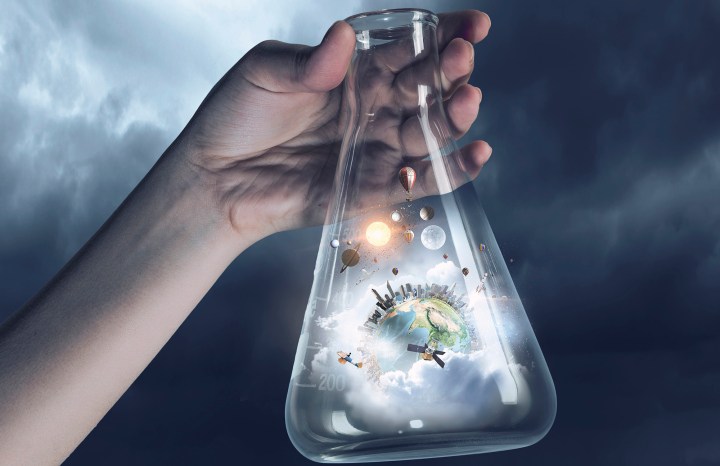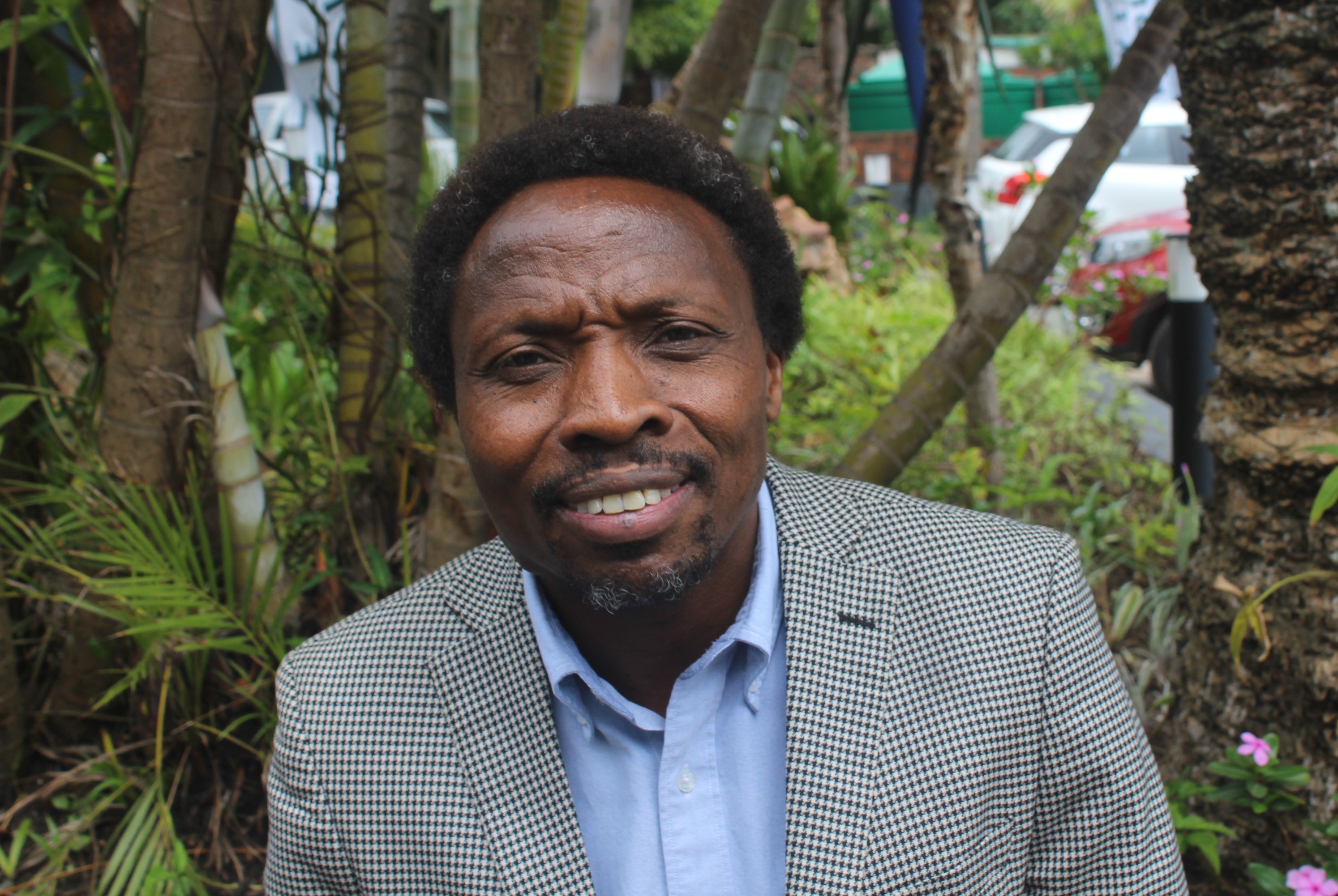PLANETARY DETOX
Why the world needs a new panel of independent experts to control the ‘chemical avalanche’

Around 250 billion tonnes of chemicals are produced globally every year and many have not been properly researched, meaning that their impact on life on earth is unknown.
It’s almost impossible to count how many synthetic chemicals have been developed over the past century or so, or to unravel their precise role in damaging the complex web of life across the world.
What is clear, however, is that there are now hundreds of thousands of chemical formulations that have been synthesised in laboratories stretching from Beijing to Massachusetts and beyond.
Yet — despite the benefits many of these chemicals have brought to society — just a tiny fraction have been studied at anywhere near the level of detail that is necessary to assess the harms they can unleash on humanity and the wider environment.

Professor Ndeke Musee, head of the University of Pretoria’s Emerging Contaminants Ecological Risk Assessment research group.(Photo: Tony Carnie)
These are some of the reasons why senior South African chemical engineering researcher, Prof Ndeke Musee, is calling for the establishment of a new Intergovernmental Panel on Chemical Risk Assessment — similar to the United Nations’ expert panel that provides scientific advice to governments on how to respond to the climate crisis.
The Kenyan-born academic, who has a PhD in chemical engineering from the University of Stellenbosch, established the first South African research group on chemical nanosafety in the environment, during his seven-year career at the Council for Scientific and Industrial Research (CSIR).
Rapid development
Musee, now head of the University of Pretoria’s Emerging Contaminants Ecological Risk Assessment (ECERA) research group, is worried that chemical products are being developed at a rate that exceeds the current capacity of independent scientists to study their harmful impacts.
According to a recent study by Zurich-based chemical pollution researcher Dr Zhanyung Wang, more than 350,000 chemicals and mixtures of chemicals have been registered for global production and use.
Wang and his colleagues also reported that the identities of many chemicals remain publicly unknown because they are claimed as confidential (more than 50,000) or are ambiguously described (up to 70,000).
Whereas the United States, Canada and Western Europe once accounted for more than two-thirds of world chemicals turnover, their market share has dwindled significantly, with China now accounting for nearly half of global chemical production.
Musee says chemical production in China alone grew by 280% between 2003 and 2013, with developing countries now producing around 63% of all chemicals.
“Every year we produce close to 250 billion tonnes of chemicals,” says Musee.
Who’s studying the impacts?
But who is researching their impacts on the aquatic environment? He posed this question during a recent keynote address to The Conservation Symposium in Margate, KwaZulu-Natal.
Given these growing volumes, it’s hardly surprising that Australian science writer and researcher, Julian Cribb, uses the term “chemical avalanche” to describe the rapid proliferation of synthetic chemical substances that flow into the global environment daily, with largely unmeasured consequences.
“Earth and all life on it are being saturated with chemicals released by humans, in an event unlike anything that has occurred ever before, in all four billion years of our planet’s story.
“Each moment of our lives, from conception unto death, we are exposed to thousands of substances emitted by our activity — some known to be deadly in even minute doses, and most of them unknown in their effects upon our health and wellbeing or upon the natural world.
“These substances enter our bodies with each breath, with every meal or drink, the things we touch or encounter in our journey through each day.
“There is no escape from them,” Cribb says in the opening paragraphs of his book, Earth Detox, published in 2021.
Cribb suggests that at the current rate of research, it could take more than 100,000 years to evaluate all existing synthetic chemicals for human and environmental safety, and an additional 2,000 years to evaluate each year’s new products.
Smarter screening
Musee says such an evaluation will never happen unless the world develops a smarter way of ensuring more rigorous chemical safety screening measures at a global level.
He notes that the volume of academic research into global climate change increased exponentially after the establishment of the Intergovernmental Panel on Climate Change (IPCC) in 1998, and he believes the same could happen if a new panel on chemical risk assessment were formed.
“South Africa should also be part of this panel. Data regarding chemicals in products needs to become more readily available. We also need to understand the effects of mixtures of chemicals.
“We want to bring everyone on board — industry, government, regulators, scientists and consumers — to screen and prioritise chemicals for pre-market registration. We need to develop new and transparent testing criteria… to set standards and also consider bans, restrictions or green alternatives for chemicals of concern.
“There needs to be a massive shift, where new chemicals are thoroughly screened before getting into the market… and where the risks are intolerable, they should be banned.”
Musee recalled that concerns around the health and environmental effects of the antimicrobial chemical, triclosan, emerged way back in 1974, but it took another four decades for the US Food and Drug Administration to finally ban its use in numerous over-the-counter consumer products.
South African studies
Closer to home, Musee reported that four banned or highly restricted chemicals were found in several Covid-19 sanitiser and disinfectant products in South Africa last year.
Over the past seven years, Musee’s ECERA group has been studying several chemical compounds in the South African environment, including the proliferation of engineered nanoparticles or anti-retroviral pharmaceuticals such as Efavirenz and Tenofovir used for the treatment of people living with HIV.
He noted that experiments with alpha alumina and gamma aluminium oxide nanoparticles showed “significant” harmful impacts on freshwater snails — including fewer eggs, smaller eggs and lower hatching rates.
That might not seem like such a big deal, until you consider the wider ripple effects on the natural environment and food chains, such as the proliferation of algae in local freshwater systems due to lower predation by snails.
Another local study exposed aquatic plants to engineered silver and zinc nanoparticles. What was interesting about this study was that the negative impacts on plant growth only became apparent after 14 days — whereas the more commonly used experiments involve exposing aquatic life to contaminants for much shorter periods (four days or less).
Musee and his colleagues have also been researching the extent of triclosan contamination of rivers in Gauteng and potential impacts of coated-gold engineered nanoparticles on aquatic plants collected from Hartbeespoort Dam in North West. These particles are used as drug-delivery mechanisms for cancer treatment.
Growing peril
Elsewhere in the world, numerous examples of the human and environmental risks were brought to light in a recent scientific review paper titled: ‘Chemical pollution: a growing peril and potential catastrophic risk to humanity’.
Authored by Prof Ravi Naidu of the Global Centre for Environmental Remediation at the University of Newcastle (Australia) and 10 colleagues, the paper suggests that government regulation alone cannot reduce or control the levels of harm caused by synthetic chemicals.
Naidu and his colleagues note that the United Nations Environment Programme advocates a consensus approach of “voluntary and legally binding frameworks for promoting the sound management of chemicals” — despite evidence that the problem is getting worse, not better.
Visit Daily Maverick’s home page for more news, analysis and investigations
“The question remains how quickly and effectively such frameworks can control the growing release of chemicals globally, especially in countries where regulation is weak, officialdom corrupt and industry has little or no concern for human health and environmental safety.”
“Unless industry worldwide receives strong, clear, economic and regulatory signals to produce clean, safe and healthy products, it will continue with business as usual (Hou and Ok 2019). Coordinated action on a global scale is required to make a change in this regard.
“We propose that a global consensus process similar to that now operating for climate change be introduced as quickly as possible. This will be a multinational initiative underpinned by science and government, to define, quantify, set limits to, recommend clean-up approaches and devise new ways to curb the growing efflux of chemical contamination on human health and the environment.” DM/OBP






















 Become an Insider
Become an Insider
Comments - Please login in order to comment.